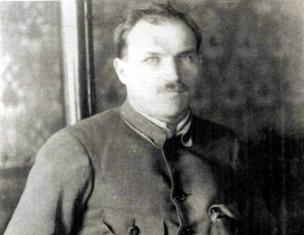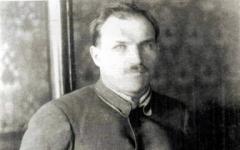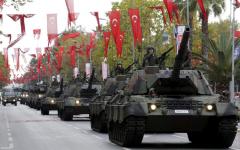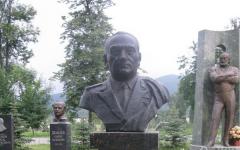Graduation school students are preparing with all their might to take external independent assessment tests. Less responsible people started working on their textbooks closer to spring, and some only now. But all applicants have one task: to properly manage the remaining time.
MAIN SUBJECTS. We asked experienced teachers about how to best prepare for this important test (the main session starts on June 3). All teachers recommend practicing on last year's tests to get used to the exam format. And be sure to time yourself: in order to earn as many points as possible, you need to know how many minutes you can spend on each question. Motivation and a systematic approach are also important in preparation.
1. It is necessary to prepare. For some reason, not all graduates realize the need for training as such. Some people hope that maybe, they say, he somehow studied at school all these years, so he will pass the test. Some people rely on teachers’ assurances that the test can be passed successfully without additional preparation. But teachers do not always care about the fate of their own students, and school grades do not always objectively reflect the level of knowledge. It is enough to sit down and complete last year’s assignments in the selected subjects, observing all the conditions (do not use reference books, calculator, etc.) to see real prospects for passing the External Examination.
2. Don't pull the cat's tail. You need to start preparing as early as possible. If we talk about such subjects as the history of Ukraine, geography and biology, then, as a rule, the material covered in the fifth or sixth grades is completely forgotten by the eleventh. Physics, chemistry and mathematics require not only theoretical knowledge, but also practical skills that cannot be acquired in one day. Languages, in turn, “do not tolerate” long breaks in learning. As for Ukrainian literature, it is simply impossible to re-read all the works of the school curriculum the night before the exam.
3.It is necessary to set the preparation mode. Why is this important? Yes, because preparation for any subject requires systematicity. Decide on which days and for how long you will prepare and try to stick to your plan. Adhering to a strict schedule will prevent you from being lazy and idle, all the time looking for new excuses for your own laziness, and will also give you the opportunity to control your progress and identify topics that are more difficult for others. The optimal training regimen is 2 times a week for 1–1.5 hours.
4. There is no need to confuse GIA and VNO. The State Final Certification (FCA) is carried out and checked at school, and not a single teacher will give a student a grade for the GCA that is lower than the annual grade. Thus, problems with passing the State Examination usually do not arise. But successfully passing the school examination does not at all guarantee a high score on the External Examination. You must prepare separately for external testing.
Where can I read some news about cancer? Information about universities? Where should you prepare or testify to yourself? We have selected 50 hazelnuts for you, sorted by theme. Take yours and get rid of them!
1. http://testportal.gov.ua - official website of UCOYAO (Ukrainian Center for Assessment of Lighting Quality)
2. https://testportal.com.ua/regions/- I have divided the site with the regional centers of the Center for Nuclear Weapons, where you can find the contact details of the nearest center.
3. https://info2016.testportal.com.ua/- individual page of each participant of the ZNO from his registration until the withdrawal of the credits and certificate (whose address may change to info2017 separately)
4. http://mon.gov.ua/- official website of the Ministry of Education and Science of Ukraine.
5. http://www.vstup.info/ - all universities and specialties. In the meantime, you should use the resource to be amazed at the various specialties and know what grade you need to work for. Plus marvel at the statistics from the past
6. http://abit-poisk.org.ua- search of applicants for a nickname, balls, specialties.
7. http://osvita.ua- site dedicated to news about sanctification.
8. http://osvita.ua/test/- section of Osvita.UA, dedicated to news about cancer
9. http://www.osvita.org.ua/ - a great information portal.
10. http://www.education.ua/ua/- a great catalog of educational institutions, colleges, courses and tutors.
11. http://zno.ua/-courses, news, ideas for applicants and their fathers, free files and tests.
12. http://www.parta.com.ua/ukr/- a great information site about VNZ, ZNO, courses.
13. http://vneshkoly.com.ua/- information portal about ZNO, joining campaign, VNZ and schools.
14. http://mycareer.org.ua/- national website about career guidance with new products and vacancies.
15. http://www.education.ua/ua/professions/- catalog of professions.
16. https://www.work.ua/ua/articles/- articles about various professions, internships, job searches.
17. http://prof.osvita.org.ua/uk/index.html- section of the information portal, dedicated to career guidance, descriptions of professions, news.
18. http://prof.osvita.org.ua/uk/determine/testing/index...- a large number of psychological and career development tests.
19. http://prevolio.com/tests.aspx- a dozen career assessment tests based on scientific methods.
20. http://osvita.ua/vnz/- section of Osvita.UA, dedications to VNZ, entry into ratings.
21. http://www.education.ua/ua/universities/- VNZ catalogue.
22. http://www.parta.com.ua/ukr/university/- VNZ catalog directly.
23. http://www.euroosvita.net/- a great portal about VNZ, Bologna process and ratings.
24. https://abiturients.info/uk- VNZ catalogue, VNZ selection, applicant calendar.
25. http://zno-ua.net- a site with online tests of past fates of ZNO.- author’s blog about cancerous diseases in Ukrainian language and literature. The site contains statistical lessons from various topics, for the sake of effective preparation and useful materials. The author of the blog also conducts online trainings and webinars until ZNO.
31. http://zno.if.ua- another site dedicated to the topic of knowledge of Ukrainian language and literature.
32. http://pravopys.net- Electronic version of the book “Ukrainian spelling”
33. http://lcorp.ulif.org.ua/dicta/- a great online dictionary. Digested by professors of Ukrainian universities and, to date, the largest dictionary of Ukrainian language. Resolve word forms, meanings, modifications, synonymy and phraseology.
Now is the time to hit the books. But first you should decide how to prepare for the exams: on your own, with the help of school teachers, tutors, or in specialized courses, for which both universities and independent training centers have already begun enrollment. As practice shows, each method has both advantages and disadvantages.
TEACHER TO TEACHER DIFFERENCE
Those who are ready to involve teachers in preparing for external assessments today have several options to choose from.
School teacher. The simplest of them is the help of school teachers. In many metropolitan schools, electives have already begun to function, in which a teacher of a specialized subject teaches high school students on test assignments from previous years. The main emphasis is on “debriefing” - the student and teacher analyze the mistakes made in the work. In addition, all previously covered material is repeated. Officially, such classes are free, but in some schools, according to information from students and their parents, you will have to pay 70-100 UAH for additional classes. per month. In the case of individual lessons with a school teacher, the amount is negotiated privately, but, as a rule, the fee is 300-400 UAH. per month. With this scheme, the quality of training depends on the level of the teacher. If you are confident in his competence, it is definitely worth preparing “at school”. But in order to look at the subject from a new angle, it is worth trying to study with another teacher who, having his own methods of presenting the material, will certainly be able to supplement the knowledge base that the high school student already has. In addition, he will be able to objectively assess your level and see some new weaknesses.
Private tutor. For those who value an individual approach, we can recommend a private tutor as a “new mentor”. Today, finding one in any subject is not a problem: the media is full of advertisements for tutoring services. But a wide choice is fraught with a lot of dangers: you risk getting, to put it mildly, a weak teacher, who is in many ways inferior to your school teacher, and even paying money for it. To prevent this from happening, it is better to choose a tutor based on a recommendation. If this is not possible, check his track record by finding out the main place of work of the teacher (it is better if he is a full-time employee of a university or school, and not a teacher of, say, foreign language courses, in which case he may not know the school curriculum), his experience in preparation for testing and the performance of his students. Prices for private tutoring services start from 50 UAH. per hour, but there are also those who charge 150-180 UAH. (usually these are famous university teachers). In any case, do a trial before paying for several classes.
TRAINING INDEPENDENTLY
The director of the Kyiv-Mohyla Collegium Lyceum, Alexander Kovalchuk, is confident that independent training is quite within the capabilities of high school students. “After all, in essence, the tests contain school material, and in order to pass them successfully, you just need to repeat what you have passed well,” he believes. “In order to qualify for high scores - 170-180 or more, it is still advisable to know more than what the school curriculum provides,” advises Alexey Kolesnikov, director of the IQ Planet training center. In this case, it is necessary to take into account the characteristics of tasks in each specific discipline, as well as monitor possible changes that are annually introduced into tests by the Ukrainian Center for Assessment of the Quality of Education.
Ukrainian language and literature. Teachers pay attention to the fact that tests in Ukrainian language and literature are becoming less and less “theoretical” every year and require not only knowledge of grammar, but also demonstration of creative philological abilities. “The variants of test tasks that are offered for next year will also focus on speech culture,” adds Alexander Kovalchuk.
Mathematics. Mathematics tests will be significantly adjusted this year. Last season, the test task consisted of 3 parts. The first involved a question with multiple answer options, the second - tasks that the student had to solve independently, the third was an analogue of a classic test. The first two parts were checked by a computer program, the third by teachers, which caused complaints from many students who did not exclude the influence of the “human factor” on the result. To avoid accusations of examiner bias, this year the Ukrainian Center for Educational Quality Assessment plans to replace part 3 with classical tests that will be checked by computer. “Such a task is simpler than solving an analogue test, but it is expected that the test questions themselves will be more difficult than last year,” says Natalia Lysenko, mathematics teacher at the Kyiv Business Lyceum. According to her, although mathematics tests are based solely on the school curriculum, the tasks in them are more complex than in the textbook. Their goal is to check the general level of the student’s mathematical culture. To prepare for this test, you should not only repeat previously covered material, but also train using test collections from previous years (for example, “School collection of test tasks in mathematics” by Yu. Zakhariychenko, from 30 UAH). But it is worth noting that in last year’s collections you will not find the last - third - task in a new interpretation.
Story.“There will most likely be no changes in history test tasks this year,” says Elena Bogdanova, a history teacher at the Kiev-Mohyla Collegium and one of the developers of tests in this subject. “Since the tests include only the key points of certain topics, the test results largely depend on the student’s ability to correctly place emphasis,” says Ms. Bogdanova. For example, on the topic of the Ukrainian Cossacks in last year's tests there are questions on the date and place of formation of the first Sich, but not on the other seven; you need to list the Cossack uprisings and their consequences, but it is not necessary to know the years of life of the hetmans or all the battles without exception.
English. According to Inna Beridze, English language teacher at the Kyiv Business Lyceum, foreign language tests should not differ from last year’s (there are no final versions of the 2010 tests yet). For those who plan to take tests in a foreign language, Inna Beridze advises actively learning new vocabulary and reading a lot, thus increasing their vocabulary. The fact is that individual test tasks are devoted, in particular, to the so-called exploratory reading, when the student is asked to arrange paragraphs in the correct order, find answers to questions posed in the text, etc. Writing an essay, letter or composition is given as creative tasks for testing in a foreign language. . Neither speaking nor listening are included in the exam yet.
WE BECOME “CADETS” OF UNIVERSITIES AND TRAINING CENTERS
You can also prepare for testing in specialized courses. They are offered by both universities and training centers.
Preparatory courses at universities. The first adapted their traditional preparatory courses for these purposes, after this year the Ministry of Education and Science finally deprived their graduates of benefits upon admission (previously, they became students by passing internal exams after the courses). Most institutes offer 5-6 month courses. Classes will last until May inclusive and will be held 3-4 times a week in the evening. For residents of other regions, many educational institutions provide distance learning. Towards the end of the year, intensive 3-month or monthly classes are planned for those who do not have time to enroll in a long-term training course.
You can take training in one or more test subjects. In addition to the course fee (see table), there may also be additional costs for the purchase of textbooks and test notebooks, which can cost 200-300 UAH. Compared to last year, preparatory courses at universities have risen in price by 9-10% (they are allowed to index prices to the inflation percentage). And this is not the limit: as KPI preparatory course methodologist Valentina Maksai said, starting from the new year, courses may rise in price by another 15-20%. According to the expert, classes are taught by university teachers who provide more extensive material than the school curriculum provides. In addition, applicants complete tests in the form of tests, and at the end of the training they conduct trial testing, which should help them adapt to the exams.
Vice-Rector for Scientific and Educational Work of the Kyiv National University of Culture and Arts Alexander Sknar also notes that preparatory courses at all universities are licensed by the Ministry of Education and Science, therefore they work according to a program approved by the ministry, which cannot be said, for example, about tutors. In addition, although there are no official admission benefits for course graduates, universities often give preference to them. So, this year there were examples when, from applicants with the same number of points, the selection committee chose “their” applicant. Among the disadvantages of training at university courses are large groups (25 people) and a lecture-based training system, where the individual approach is leveled out.
Courses in training centers. These disadvantages are promised to be eliminated in private training centers. Groups there do not exceed 7-10 people, and they work with students individually (up to the point of repeating the material due to missing group classes). The centers also say that they are working on testing programs for 2009, taking into account planned changes for the next introductory season.
The average cost of training here starts from 400 UAH. per month for one subject, subject to classes for 2 hours twice a week. If you are ready to pay for classes in two subjects, there is a chance to save 100-150 UAH, for three - up to 300 UAH. As is the case with university preparatory courses, in training centers you will also be offered to buy test notebooks and textbooks, so you should add another 200-300 UAH to the costs.
However, the question of the effectiveness of preparation remains open. This year, having lost their main clients, many foreign language courses, for which this activity is not their core activity, began preparing for testing. Moreover, they prepare not only foreign subjects, but also other subjects. So, when choosing a training center, pay attention to the composition of the teachers, in particular, whether they teach at the school, that is, whether they can prepare a student within the framework of the program, whether they promptly monitor possible changes in tests (the school teacher is almost certainly aware of what is happening) . To understand whether you will “work well” with the teacher, as in the case of a private tutor, it is better to arrange a trial lesson.

PERSONAL EXPERIENCE
Yana Kovalskaya, 1st year student of the Faculty of International Business, Institute of International Relations, KNU. Shevchenko and the correspondence department of the Faculty of Law of the same university; in 2009 it gained 200 points. in history, Ukrainian and English and 195.5 b. in mathematics:
Much credit goes to the high test results of the Kamenets-Podolsk Lyceum, where there is a very high level of training in all subjects. I started preparing directly for testing in Ukrainian language and literature, history and English in the spring - 3-4 months before the exams. I spent most of my time studying using test notebooks, which really helped me understand the very principle of the test system. I took longer to prepare for mathematics, almost throughout the entire year, since this subject requires a thorough repetition of the theoretical basis for almost the entire school period. Participation in the Olympiads helped me “pull up” my history because, in preparation for them, I studied all the school material at the same time. In all subjects I studied with tutors, who attracted teachers from my own lyceum. It is also possible to prepare for tests on your own, but with a good teacher it is much easier, since he sees your gaps in knowledge and helps to eliminate them.
Sergei Nedobor, a 2nd year student at the Faculty of Economic Sciences of the Kiev-Mohyla Academy, scored 194 points in 2008. in Ukrainian, 195 b. in history, 198 b. in mathematics:
I was preparing for testing in electives at my own gymnasium No. 275. We had groups of 6 people, so there was an individual approach, which is very important. After all, you need to not only “go through” the school curriculum, but also solve tests and analyze mistakes in detail, which is difficult to do without teacher attention to each student. Long “training” on test books from previous years helped me pass the tests well. They not only introduce you to this exam system, but also give you an idea of what questions to expect. To qualify for high grades, learn more in each subject than the school curriculum offers. For example, in the Ukrainian language, complex topics are offered for creative work, for the disclosure of which it is important not only to know the subject itself, but also to be a comprehensively developed personality. In history, you need to go through the material covered, paying attention to the main events and dates. In mathematics, repeat all the topics and work through those that you did not understand very well, because in this subject subsequent topics are based on those already covered.
Greetings, dear reader!
Since you have come to this page, you are probably interested in the question: how can you prepare for the External Examination (ZNO - Ukrainian)? I won’t delay the retreat for long, I’ll just say that all the recommendations described below are my ways of preparing for the External Examination, which helped me pass it successfully. I passed 3 exams: Ukrainian language and literature, history of Ukraine and English. Therefore, I will give some tips on how to prepare specifically for these subjects.
Let's start with the very first and main subject, which was mandatory for passing in 2016 - Ukrainian language and literature. Without passing this subject, you will not be allowed to take the rest and, accordingly, will not be able to enter the university. Therefore, it is worth taking its preparation seriously.
I’ll say right away that my level of knowledge in the Ukrainian language was quite enough to pass it, so I wasn’t too worried about passing it. The very first thing you must do is to identify your “weak points”, that is, find those topics in which you understand the least or where you make the largest number of mistakes. This is the first one. Secondly, be sure to repeat even those topics that you think you know perfectly! And please remember, there is no need to “cram”, it’s better to just read more, thereby repeating this or that rule, but of course, practice. Listen, read, write to better understand the material.
For those who want to repeat the material they have covered or have a weak knowledge of the Ukrainian language, I recommend using the Mova service. DNA of the nation. With it, you can repeat accents, phraseological units, antisurzhik, synonyms, paronyms, and also test your spelling knowledge. From the Mova service. DNA of the Nation has an application for Android devices, which you can download from Google Play using the link. It is very convenient if you don’t have a printout with the rules near you or you are far from home.
So, my scheme for training in the Ukrainian language: we find topics that we are poorly versed in - we repeat the material we have covered - we consolidate our knowledge with practice (you can and even need to take the UPE tests of previous years).
For me personally, preparing for the second part of the exam - Ukrainian literature - was somewhat more difficult (I knew almost nothing in Ukrainian literature). But even in 2 weeks I was able to learn the authors of the works, their genres, read the brief content (the main thing is to understand the logic and meaning that the author is trying to convey). Fortunately, it’s the 21st century and it’s very easy to find information, the main thing is to look. Here are some links that will help you prepare for Ukrainian. lit.: Real names and pseudonyms, Authors and works, Works and to whom they are dedicated, Literary genres. Oh yes, and there’s no need to teach/repeat just anything, the Ministry of Education and Science annually makes changes to the list of literature that you need to know to pass the External Test. Here is last year's reading list.
So, the scheme for training in Ukrainian literature: download the pictures, links to which I left, if possible, print them out on sheets of paper so that you can repeat them from time to time - find a list of references - every day we try to read at least a few essays (you can abbreviate them, the main thing is to understand the essence) .
1. It is necessary to prepare. For some reason, not all graduates realize the need for training as such. Some people hope that maybe, they say, he somehow studied at school all these years, so he will pass the test. Some people rely on teachers’ assurances that the test can be passed successfully without additional preparation.
But teachers do not always care about the fate of their own students, and school grades do not always objectively reflect the level of knowledge. It is enough to sit down and complete last year’s assignments in the selected subjects, observing all the conditions (do not use reference books, calculator, etc.) to see real prospects for passing the External Examination.
2. Don't pull the cat's tail. You need to start preparing as early as possible. If we talk about such subjects as the history of Ukraine, geography and biology, then, as a rule, the material covered in the fifth or sixth grades is completely forgotten by the eleventh.
Physics, chemistry and mathematics require not only theoretical knowledge, but also practical skills that cannot be acquired in one day. Languages, in turn, “do not tolerate” long breaks in learning.
As for Ukrainian literature, it is simply impossible to re-read all the works of the school curriculum the night before the exam.
3.It is necessary to set the preparation mode. Why is this important? Yes, because preparation for any subject requires systematicity. Decide on which days and for how long you will prepare and try to stick to your plan. Adhering to a strict schedule will prevent you from being lazy and idle, all the time looking for new excuses for your own laziness, and will also give you the opportunity to control your progress and identify topics that are more difficult for others. The optimal training regimen is 2 times a week for 1–1.5 hours.
4. There is no need to confuse GIA and VNO. The State Final Certification (FCA) is carried out and checked at school, and not a single teacher will give a student a grade for the GCA that is lower than the annual grade. Thus, problems with passing the State Examination usually do not arise. But successfully passing the school examination does not at all guarantee a high score on the External Examination. You must prepare separately for external testing.
5. There is no need to storm the book market ahead of time. New collections for preparing for testing often appear after the New Year holidays, and what is sold now is nothing more than reprints of last year's publications.
You can also prepare for them, but they do not take into account the latest changes made by the Ministry and may not fully meet the requirements of the current year.
6. It is necessary to take into account the specifics of the tasks of the subject being passed. To get a high score, it is not enough to simply memorize formulas or foreign words. You also need to be able to use them and know how they can be combined with each other. Only extensive practice can help with this. As for the history of Ukraine, here, for example, it is not enough to know dates and historical facts from memory. You also need to be able to trace logical connections between events.
7. You need to repeat from the beginning. Testing tasks cover the entire school curriculum from fifth to eleventh grade.
The curriculum of any discipline is built on the principle of “from simple to complex,” and therefore you need to start with the fifth grade material. Something may seem simple and self-evident, but something long forgotten, on the contrary, can cause difficulties. In this case, of course, you need to take into account what topics are included in the EIT assignments.
8. Prepare to race. Find yourself a “rival” and prepare together. When preparing for the same subject, ask each other questions, answer them, discuss unclear points and disagreements.
This way, you will remember the necessary material faster, and learning will not be limited to boring reading of a textbook or solving problems. If “unsolvable” disagreements arise, it is advisable to turn to a teacher or tutor-consultant for help. After all, according to the law of meanness, the exam reveals exactly what was understudied or misunderstood during preparation.
9. Take short notes. You can find a bunch of different reference books on the shelves, but they don’t always include everything that you need. There is nothing better than a note written in your own hand, because by rethinking and writing down information, we remember it better. Immediately before the test, you can re-read your notes and recall everything you've been poring over for a whole year. If you suddenly have a question, then finding a rule or even an answer in your notes is much easier than leafing through all kinds of reference books.
10. Don't panic. Under no circumstances should you be convinced that all tests are extremely difficult and you will never pass them. Don’t believe your friends who have heard from “trusted people” that this year the tests will be made incredibly difficult. This is all nonsense. All tasks are solvable, all questions have answers, which means that if you approach your preparation with full responsibility, then you are guaranteed a good result.
Irina Zhiznevskaya








